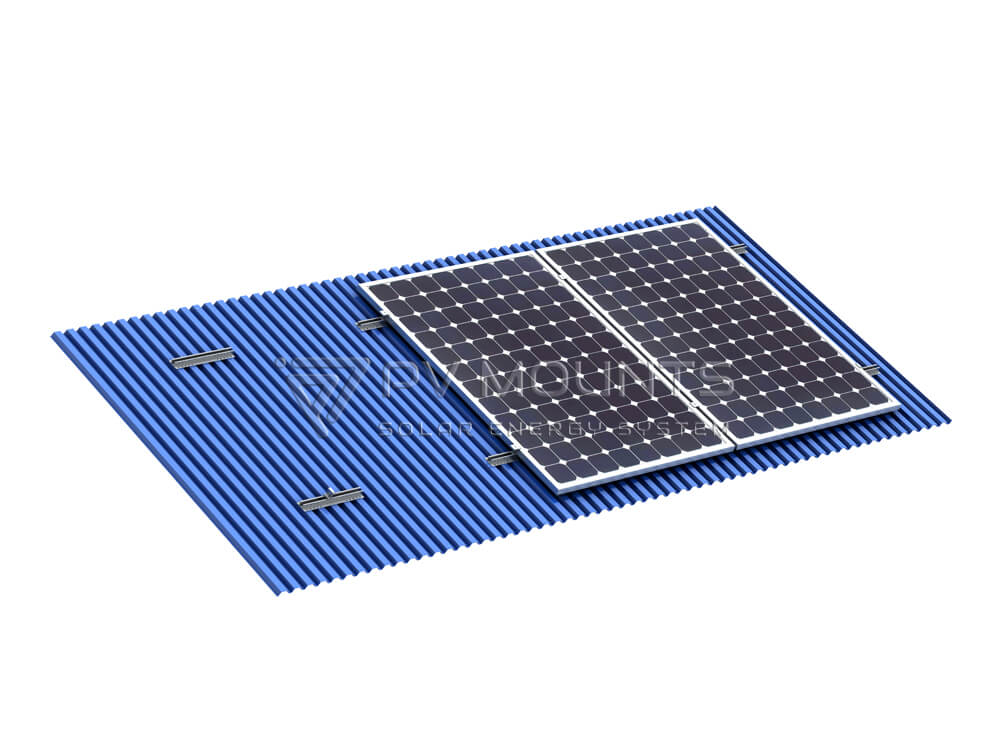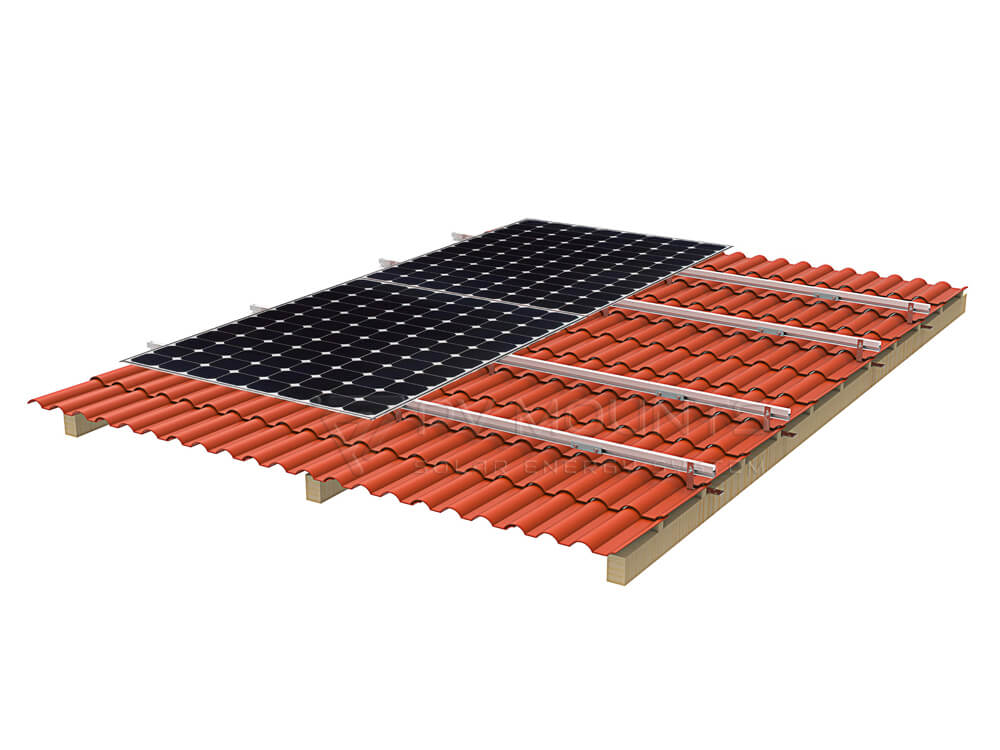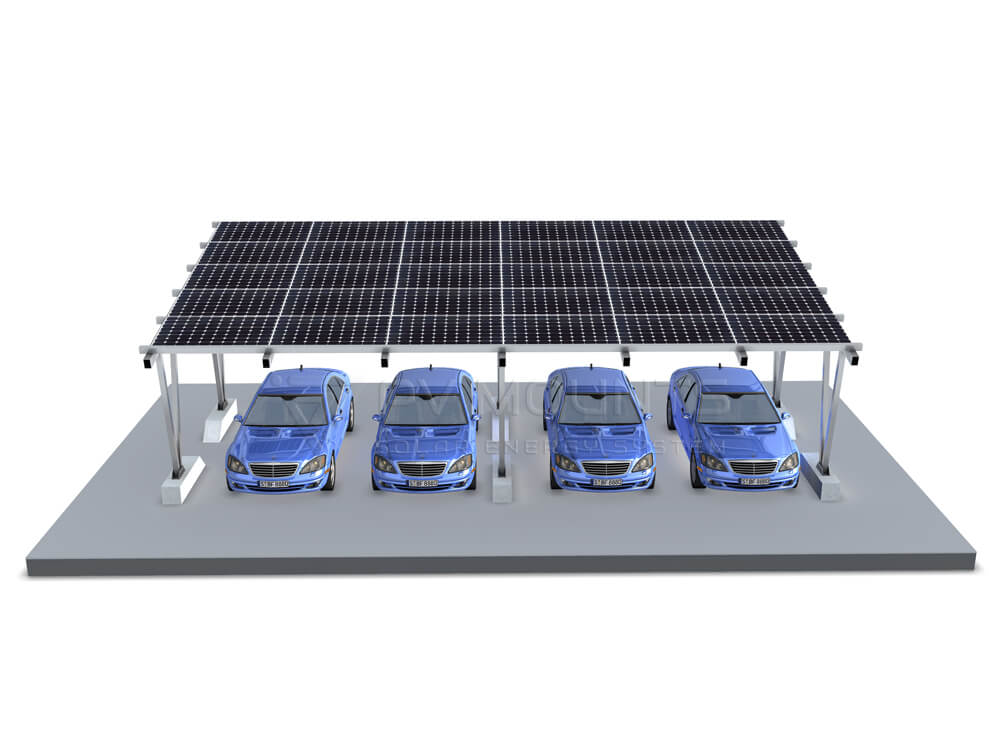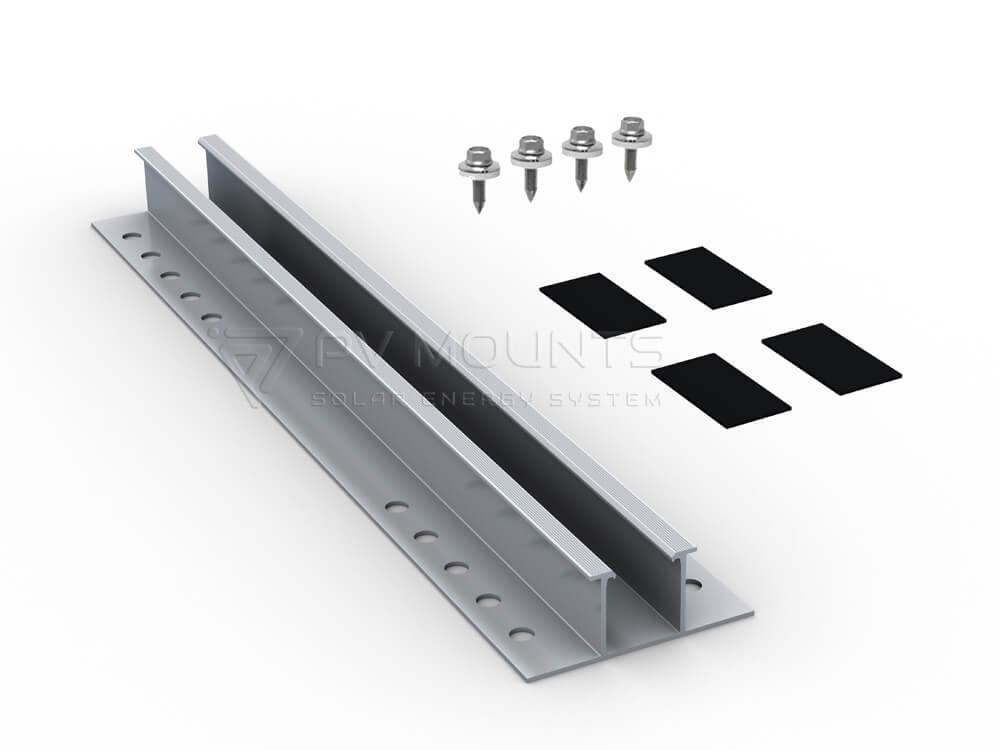Ground Solar Mounting System from PV-MOUNTS
PV Mounts - Your Professional Ground Solar Mounting System Manufacturer with Solutions
PV Mounts Solar Mounting System combines our aluminum & steel rails with components or mechanical tubing, to create a cost-effective structure capable of handling any site or terrain challenge.
Installation is simple with only a few structural components and no drilling, welding, or heavy machinery required. In addition, the system works with a variety of foundation options, including concrete piers and ground screws.

Benifits from PV Mounts Soloar Solutions
Innovative Rail Design
We exhibit unique rail designs, exclusively crafted to merge utility and elegance.
Sufficient Certificates
Strictly manufactured according to the industrial certifcate: AS/NZS 1170.2-2002, JISC8955:2017, Euro Code 8, DIN 1055, IBC 2009, MCS012, UL2703, SGS etc.
Qualtiy Management
Our Quality Management system ensures consistent excellence in product delivery, following rigorous standards like ISO9001 Quality System.
Warranty Assurance
We provide product 10 years warranties, assuring you of our confidence in the quality and durability of our ground solar mount components.
Sophisticated Sales Team
10 years experiences on aluminum extrusion manufacturing and 6 years of international sales for the solar mounting system.
Longlife Span
Designed for durability, promise a long lifespan up to 25 years and consistent solar mouting energy production.
Different Types of Ground Solar Mouts from PV Mounts
PV mounts offer different type mouting system with specific components for different installation occassions.

Standard Ground Solar Mounting System - Screw Foundation
We prioritize pre-assembly before shipping, utilizing factory planning and precision machining to avoid onsite welding and cutting. This approach saves you both installation time and costs.
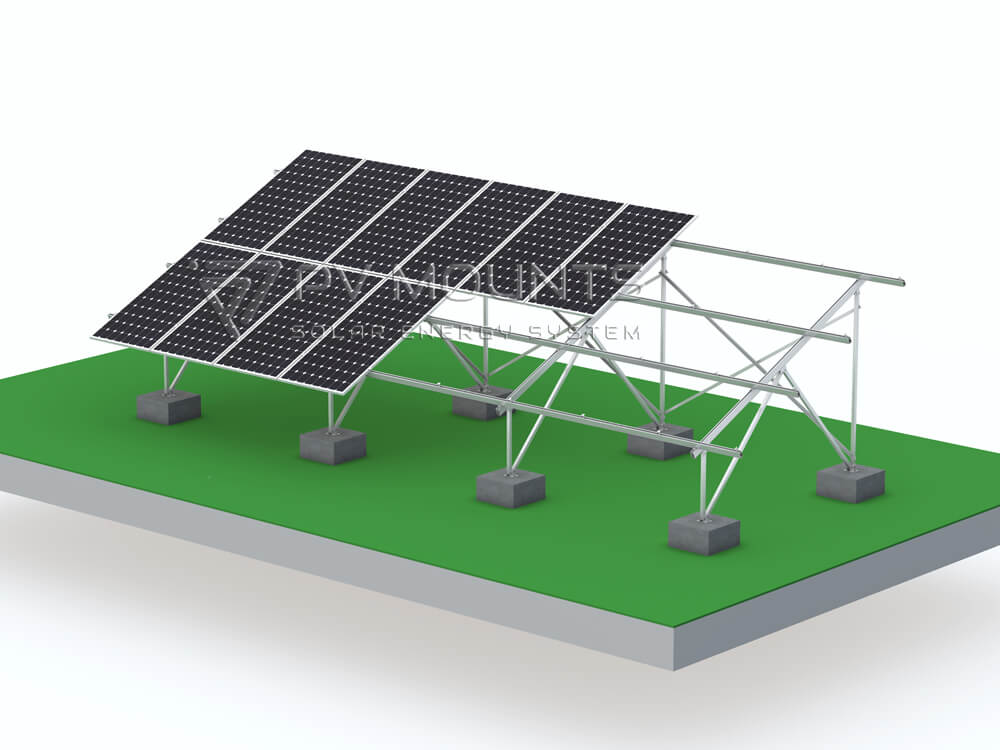
Standard Ground Solar Mounting System - Concrete Foundation
Concrete foundation is economic mounting solution and widely use in ground racking system. Optimized for easy, fast and efficient installation without extensive preparation work.
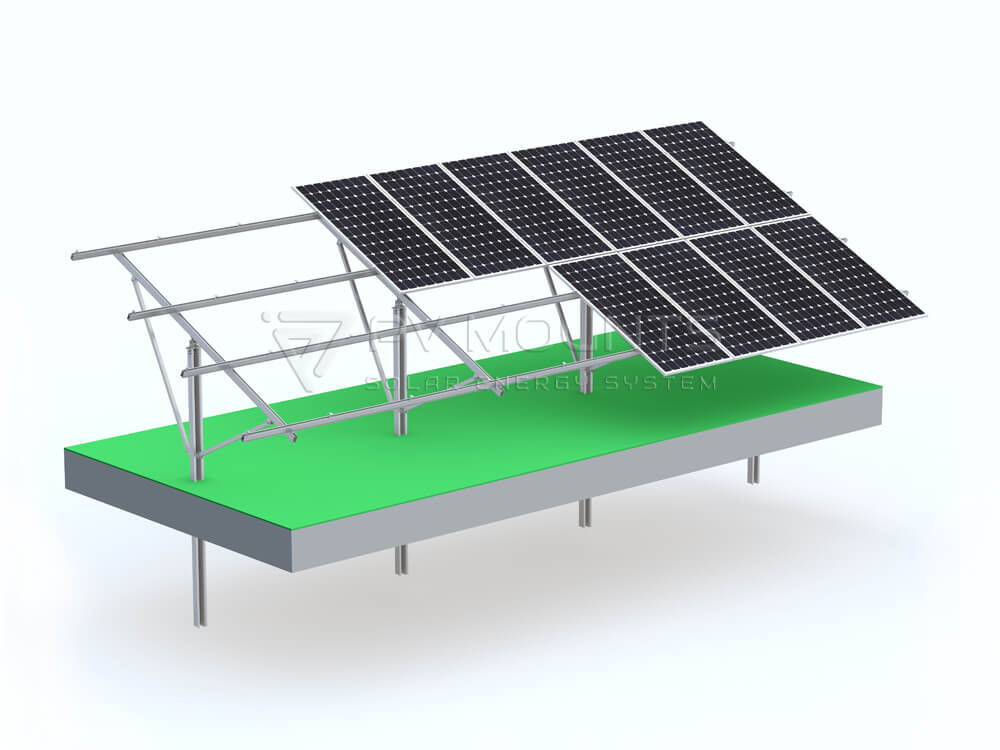
U Pile Ground Solar Mounting System
Employing pile-driven foundations and project-specific optimization, our system is ideally suited for large-scale outdoor photovoltaic installations.
Standard Ground Solar Mouting Componets
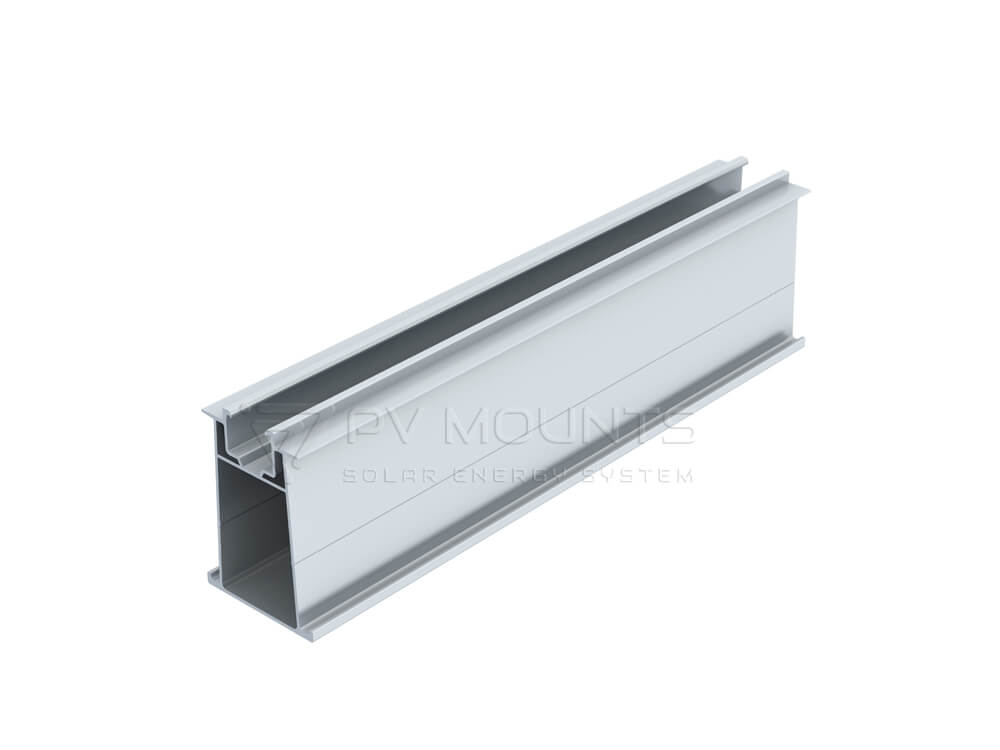
Rail
PVM-GS-01
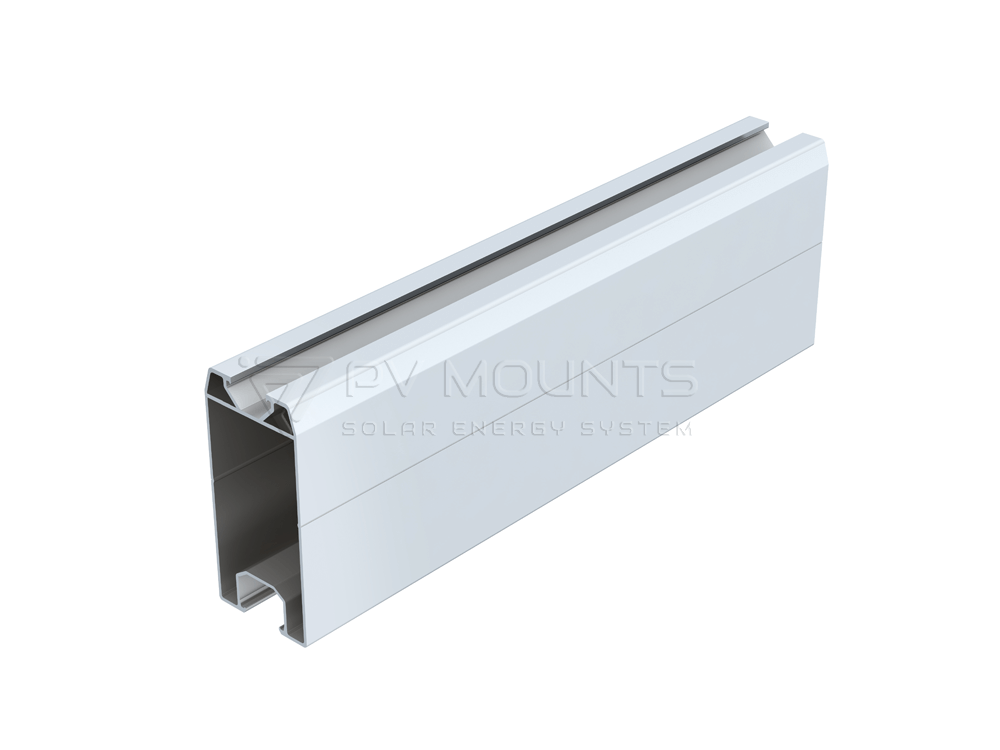
Base
PVM-GS-02

Pole Support
PVM-GS-03
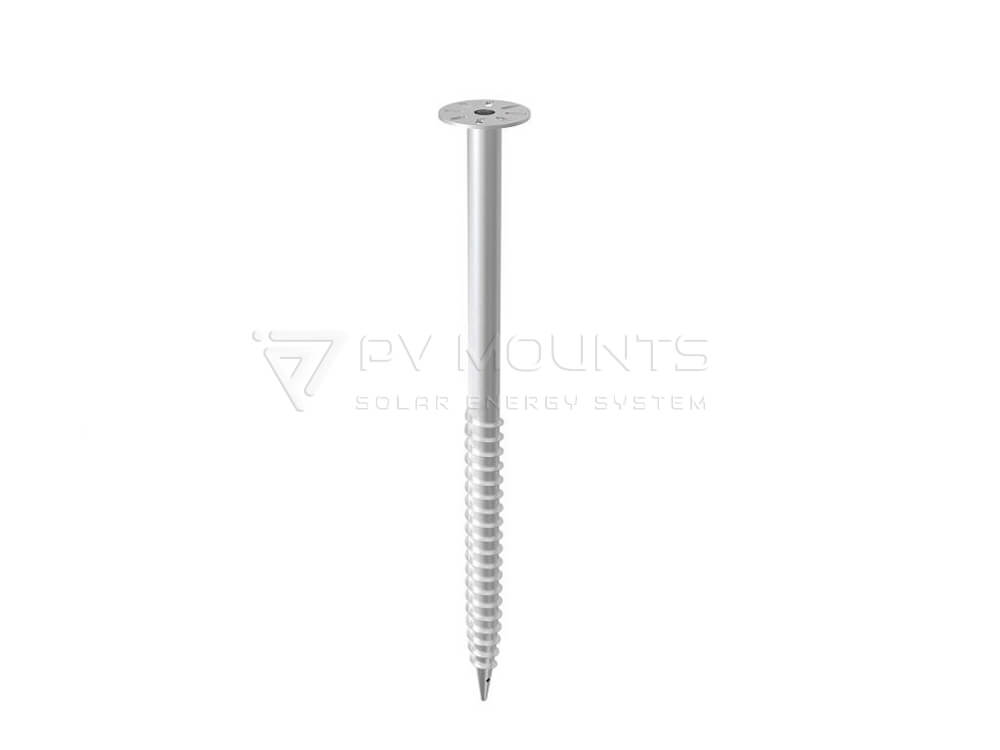
Ground Screw
PVM-GS-04
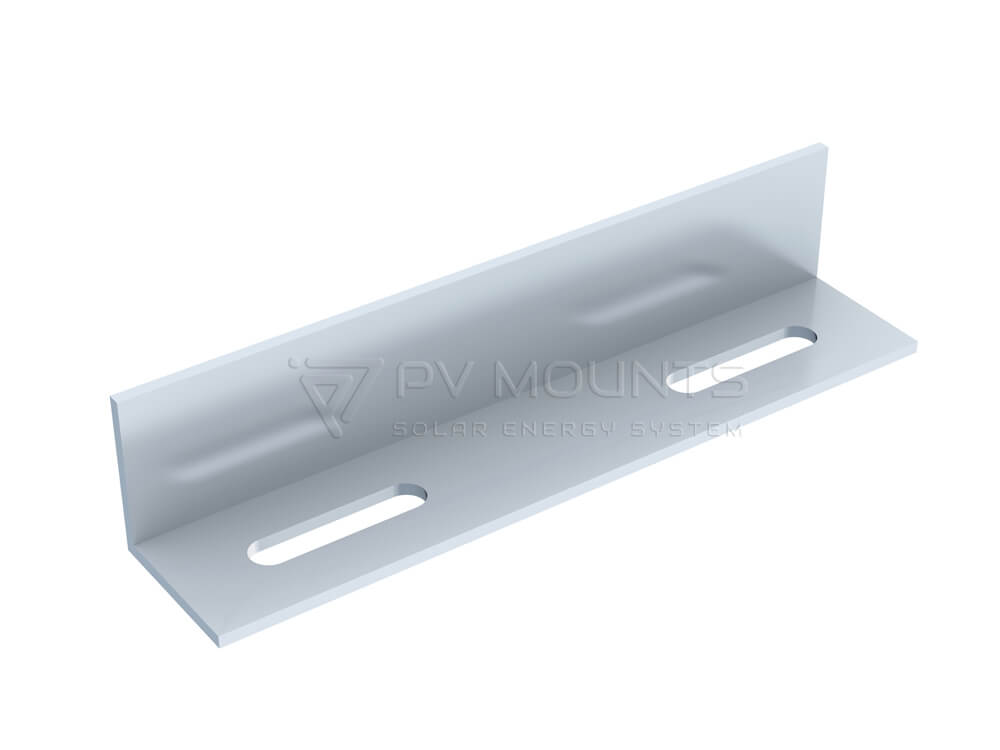
Inclined Cross
PVM-GS-05

Base
PVM-GS-06

Support Clamp
PVM-GS-08
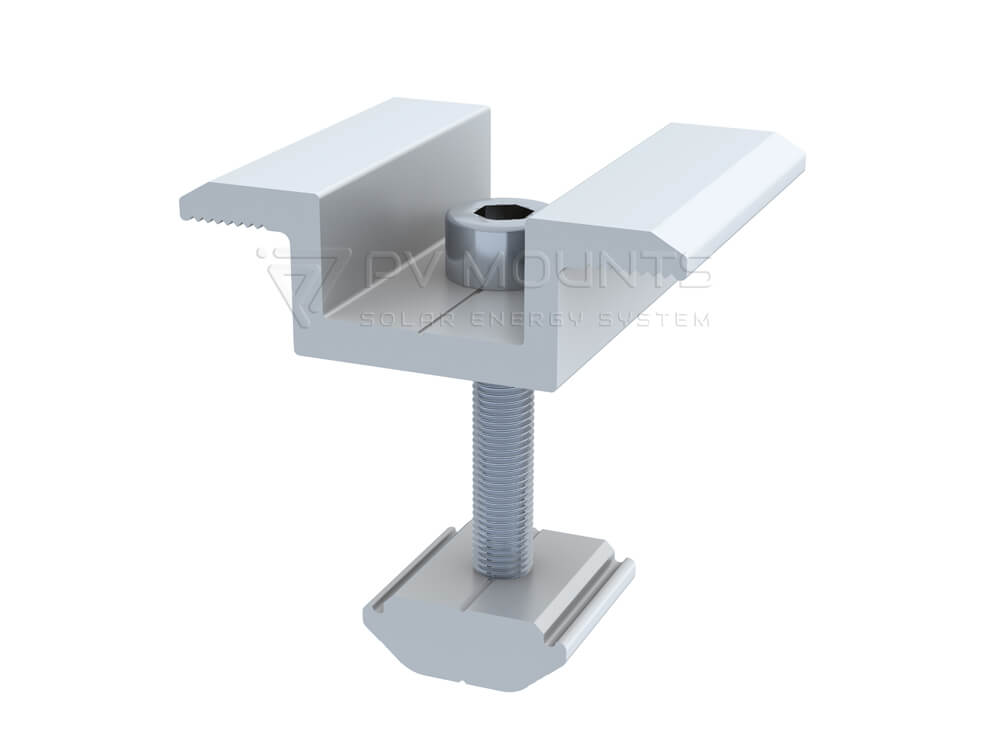
Mid Clamp
PVM-MC-B
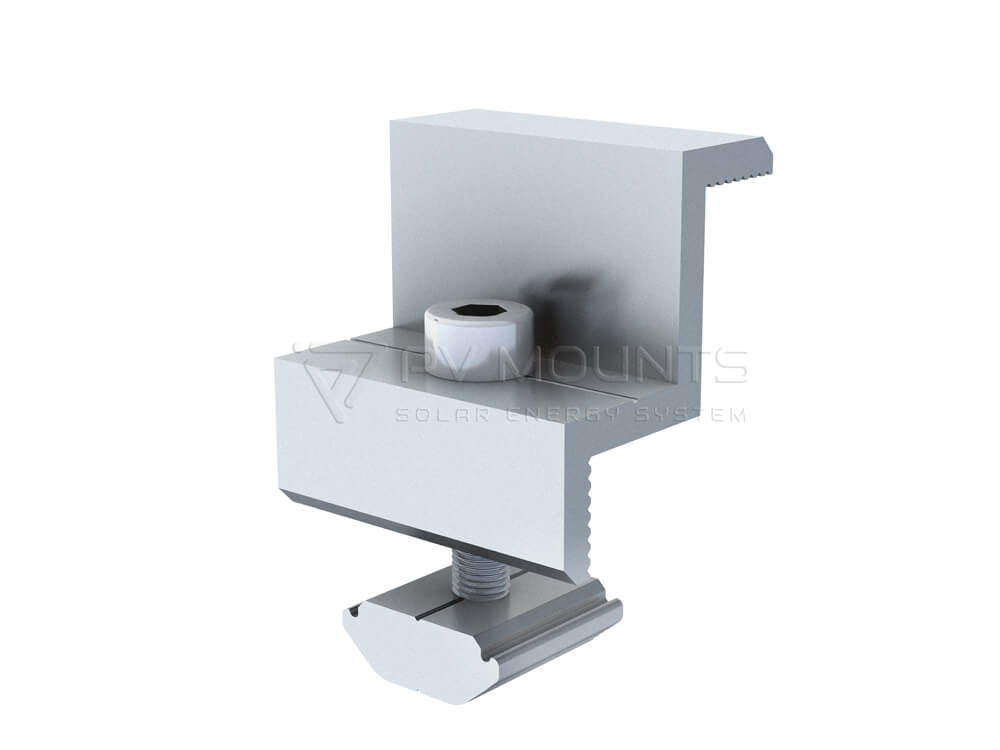
End Clamp
PVM-EC-B

N-Type pre-installation
PVM-NP

W Type pre-installation
PVM-WP
U Pile Ground Solar Mouting Componets
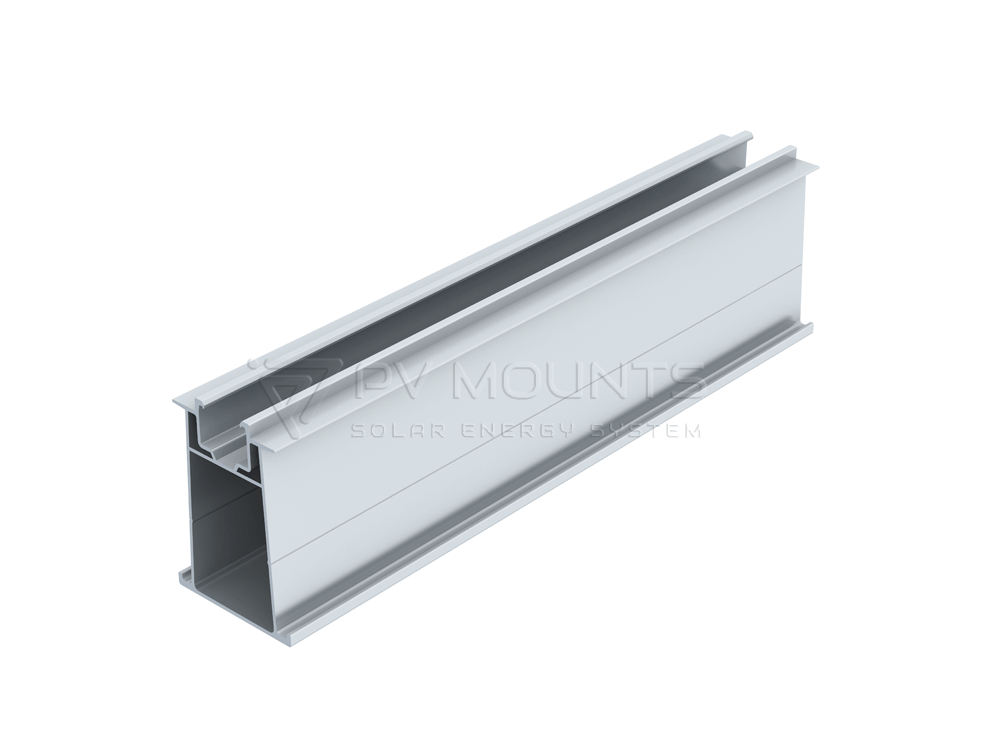
Rail
PVM-GS-01
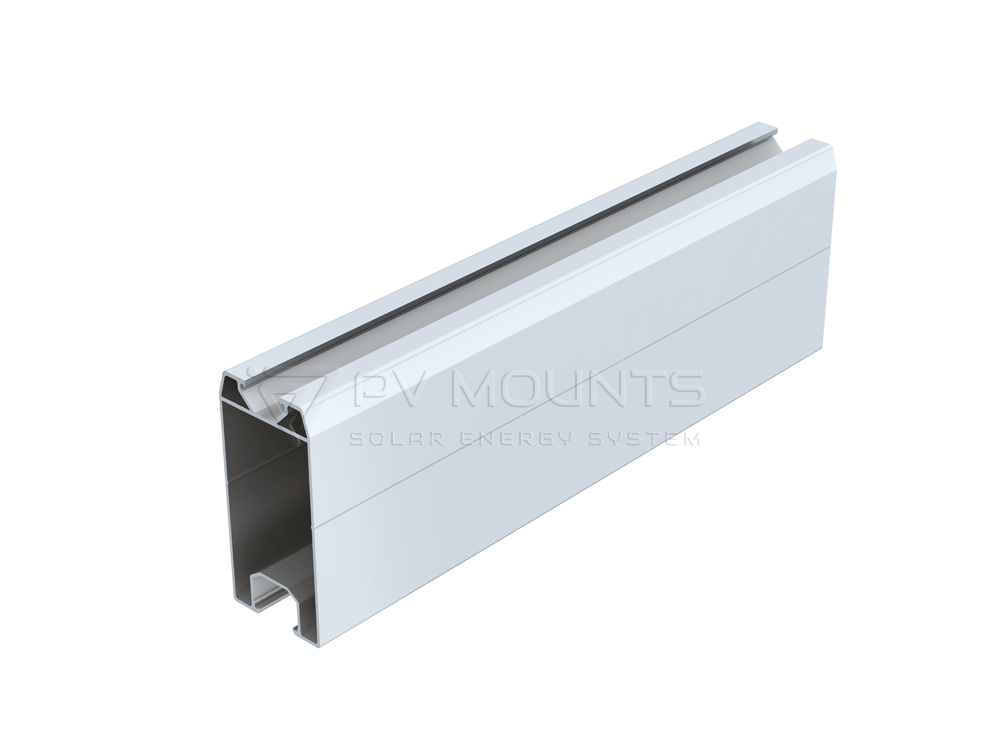
Rail
PVM-GS-02

Pole Support
PVM-GS-03

Pole Support
PVM-GC

Mid Clamp
PVM-MC-B

End Clamp
PVM-EC-B

H -Clamp
PVM-GS-04

U pile column Pre-assembled
PVM-UP-01
Videos of Components
Ground Screw Production for Ground Mount Solar
Unique Rail for solar panel mounts system
General Rail Compression Test in SGS Lab -Solar Mounting System
Tech Specifications
| Item No.: | PVM-SGR |
| Shipping Port: | Xiamen |
| Wind load: | Max 60m/s |
| Snow load: | Max 1.4KN/m |
| PV module: | Framed, Unframed |
| Module Orientation: | Landscape or Portrait |
| Fastener structures: | Stainless Steel 304 |
| Material: | 100% Anodized AL6005-T5; Stainless Steel SUS304;Q235 |
| Warranty: | 10 YEARS |
| Lifespan: | 25 YEARS |
| Finished: | Anodized AL 6005-T5; Hot dip galvanized Q235 |
| Standard: | JISC8955-2017 Photovoltaic Array Structure Design Guidelines |
| Color: | Natural or Black Anodizing |
| Application: | Ground, open filed or flat concrete roof |
How we manufacturing Ground Solar Mouting System
We make our best effort to ensure every producing details to be excellent from material, exturion, anodizing, inspeciton, package and loading. We believe quality depends on details!
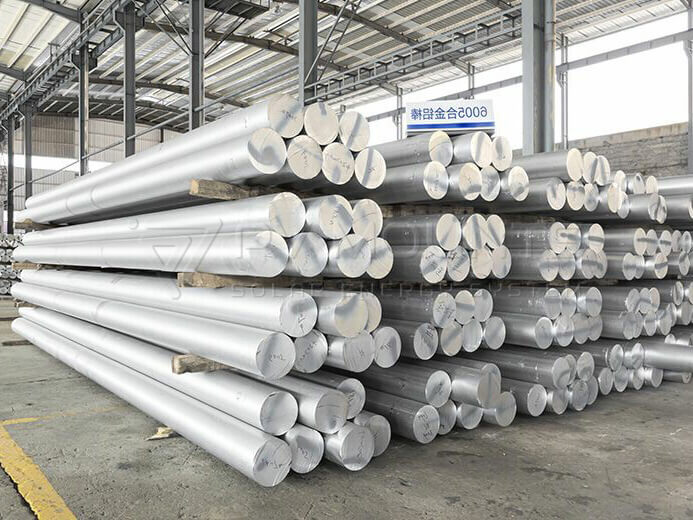
Aluminlum Pod

Aluminum Extrusion Line
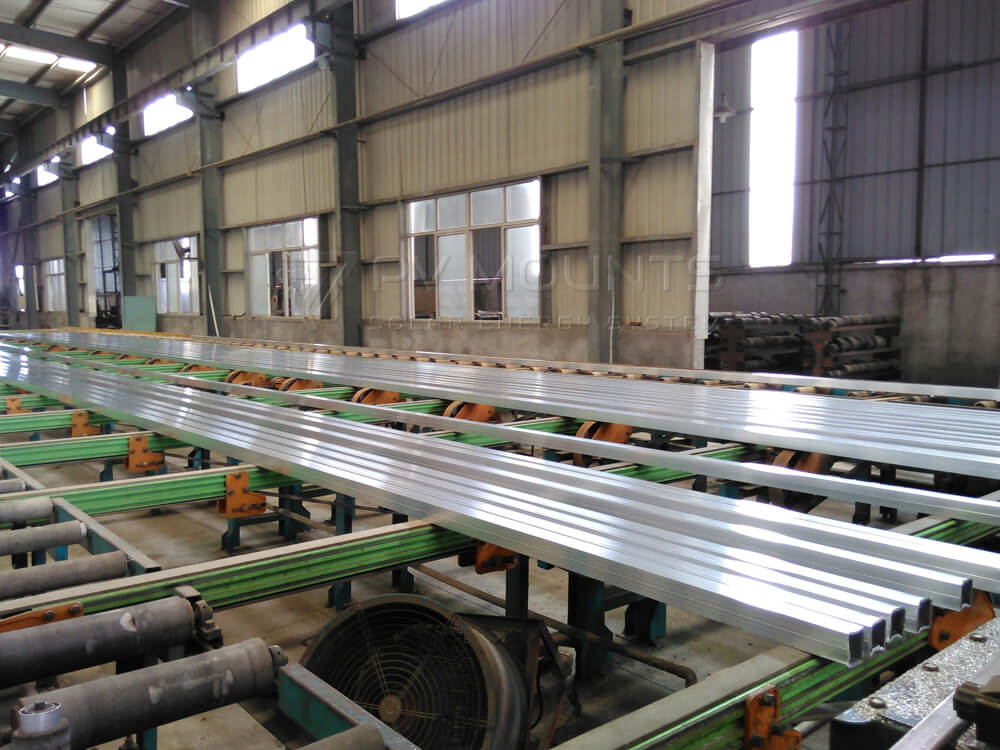
Rail Production
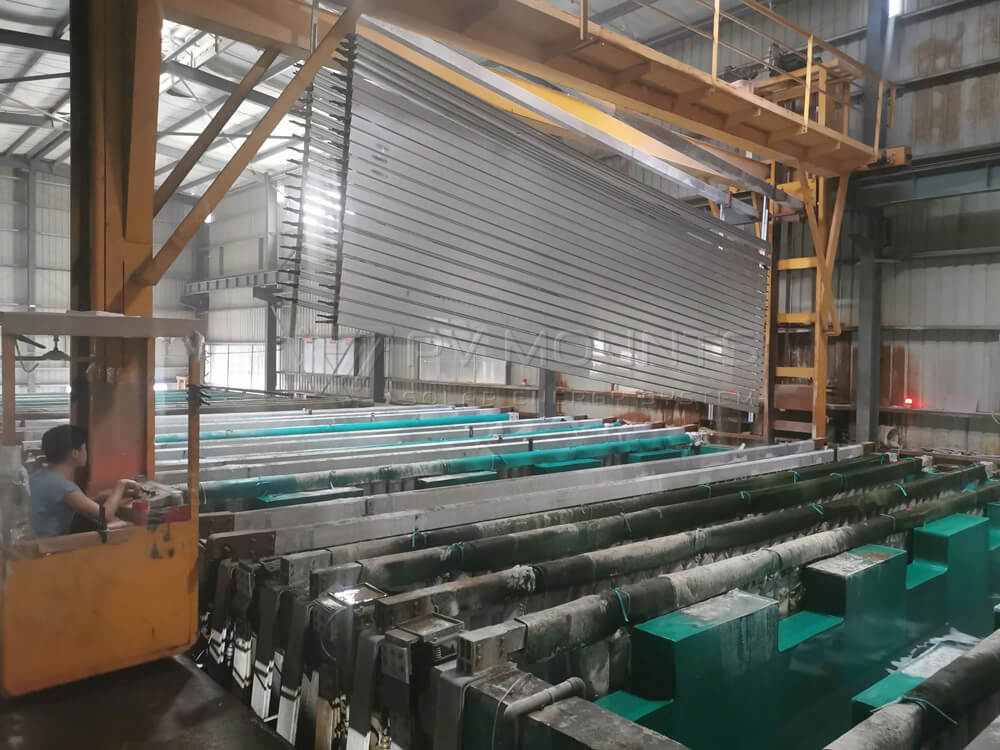
Anodizing Processing
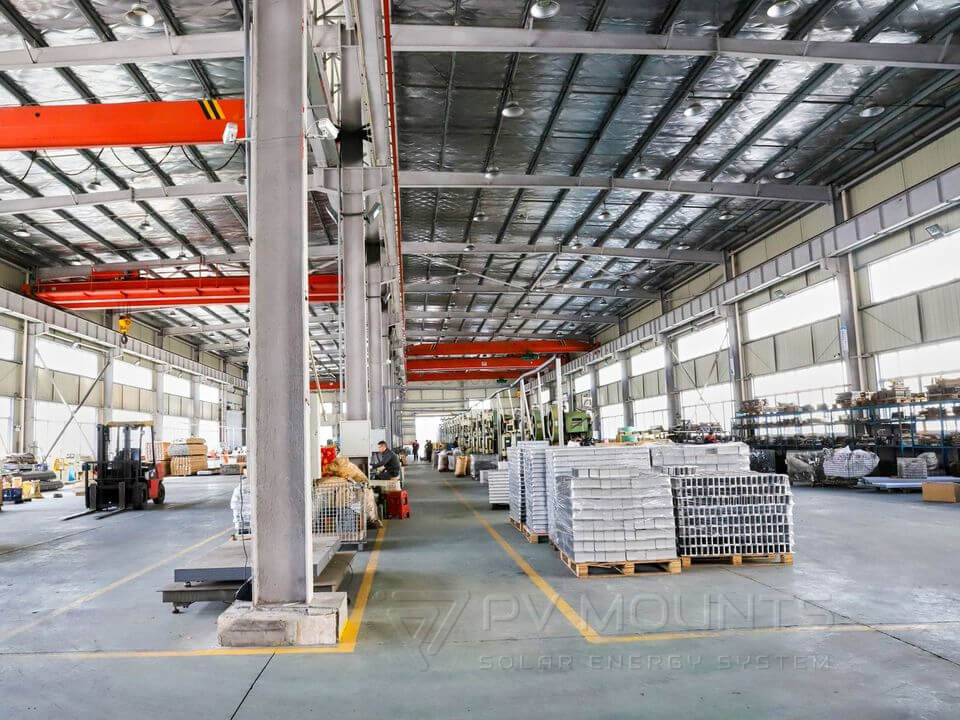
Factory
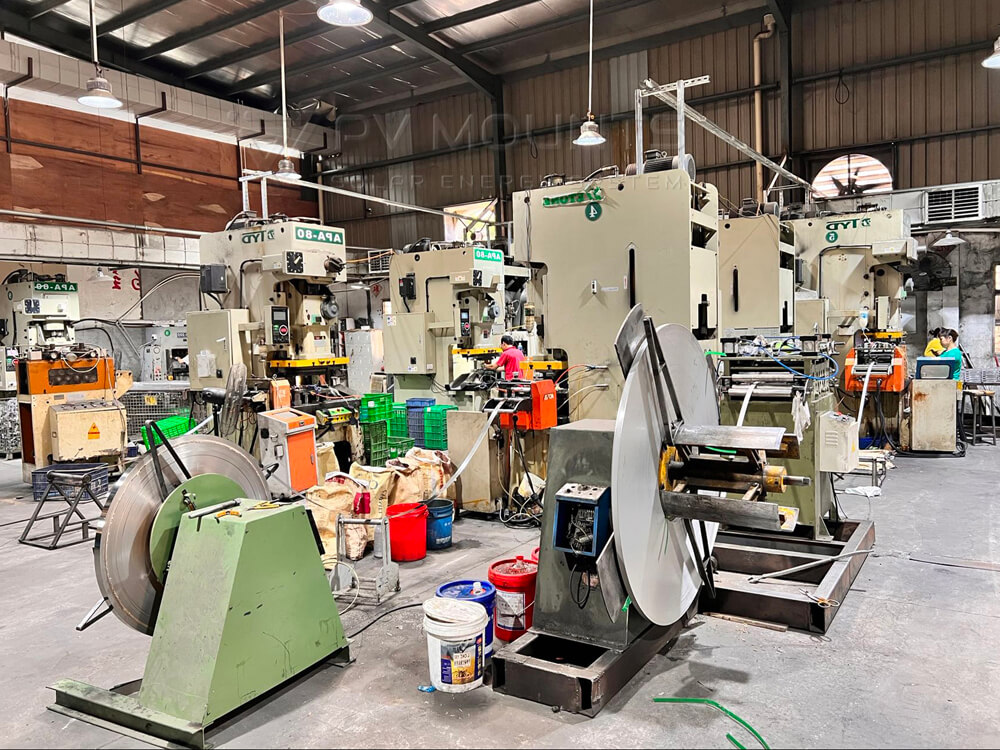
Cutting Machine
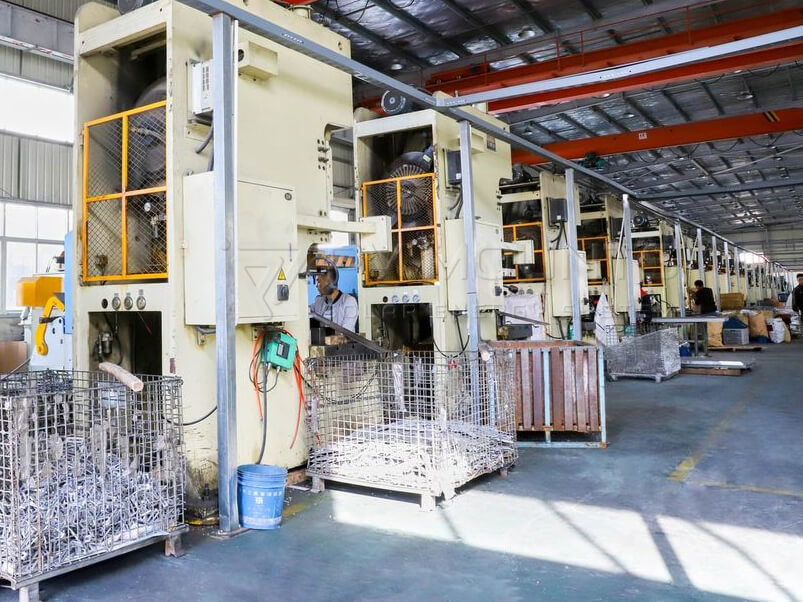
Machine
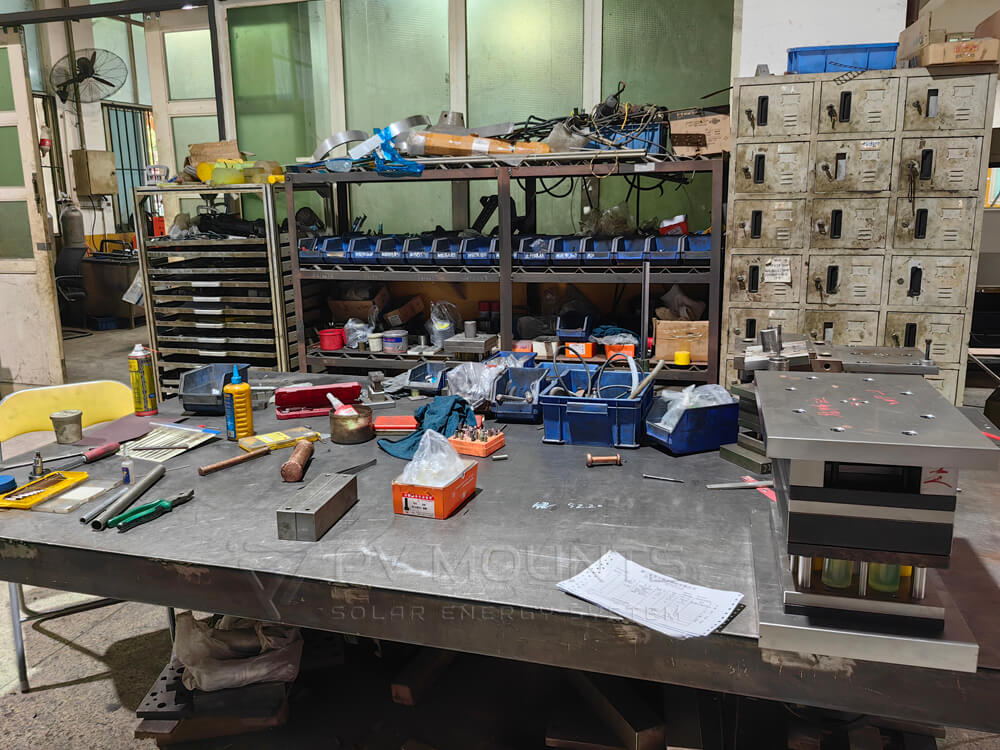
Mould Workshop
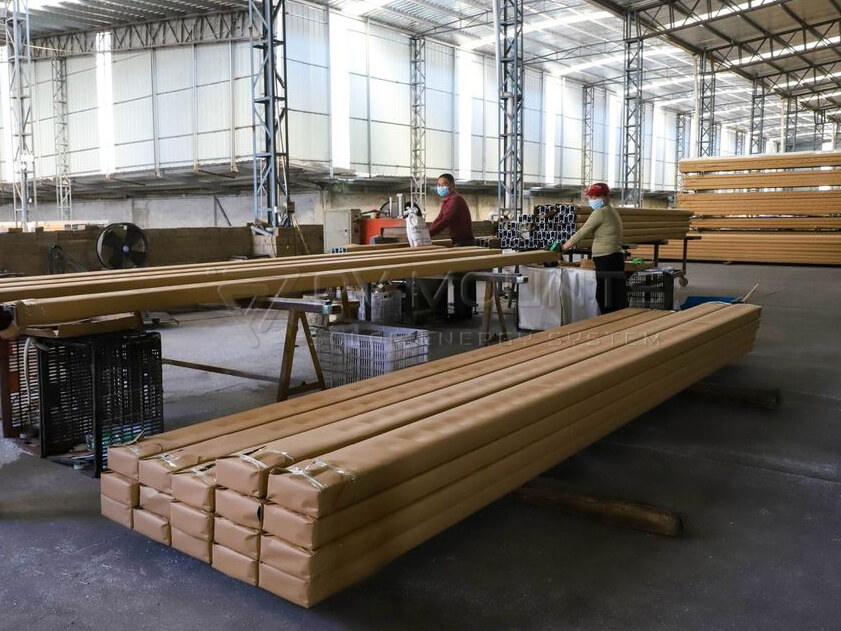
Warehouse
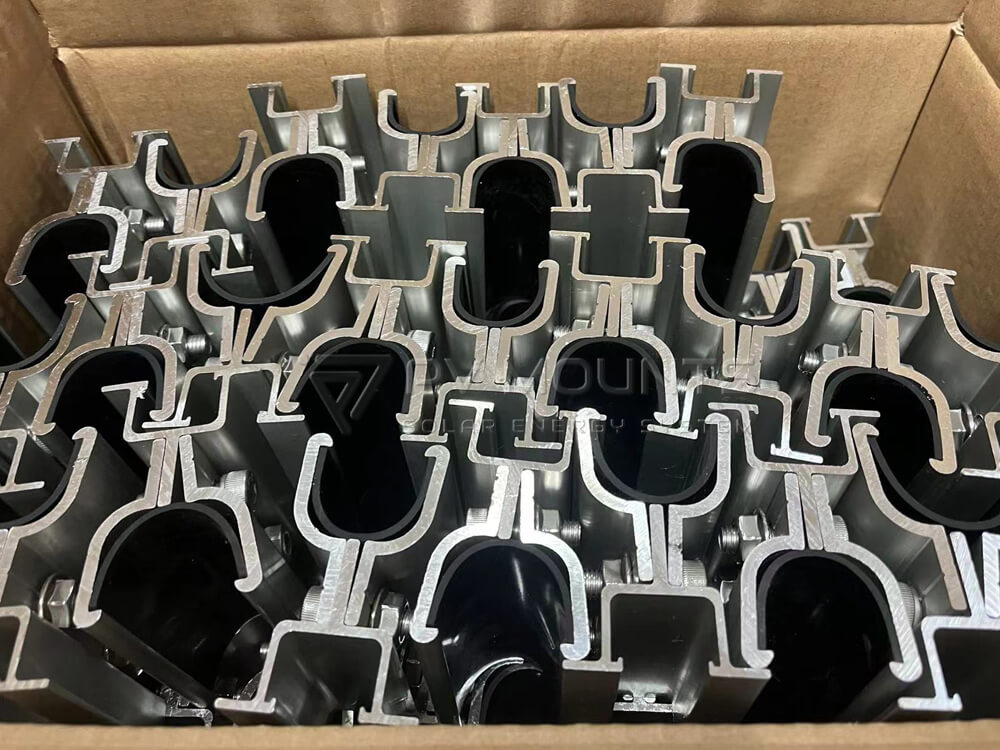
Rubber Intergrated
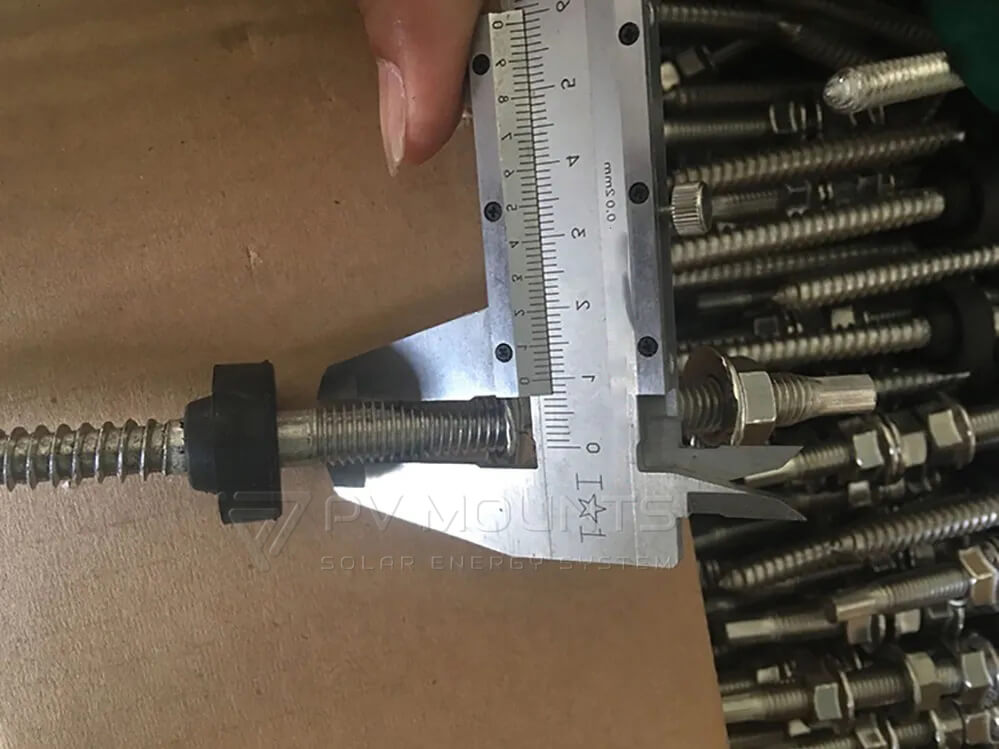
Inspection
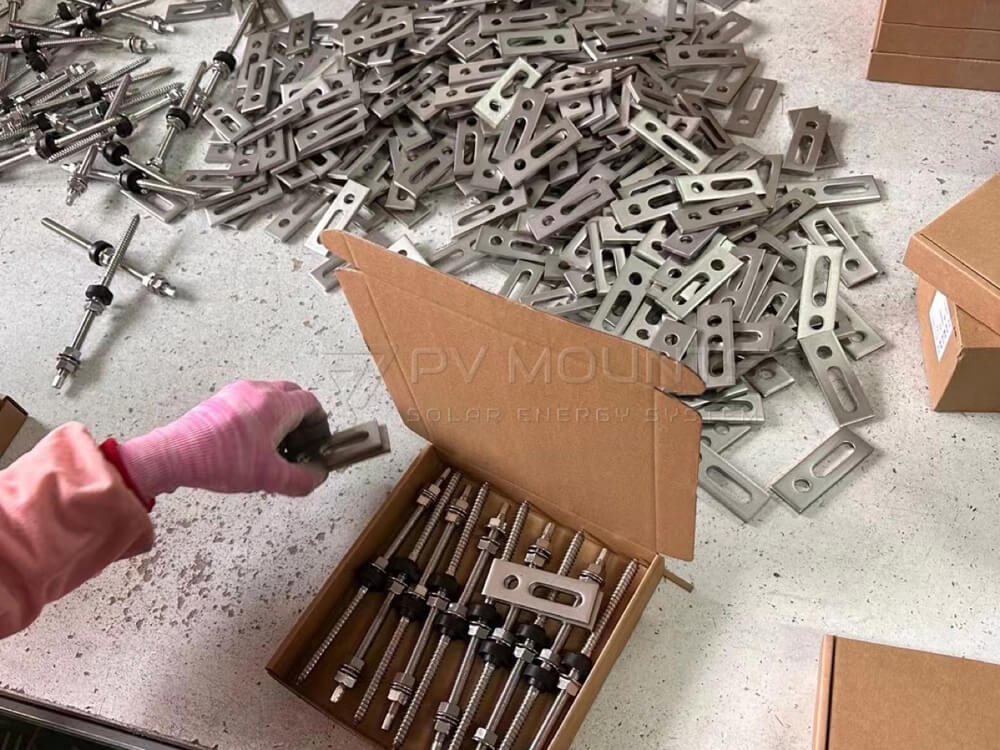
Hanger Bolt Packing
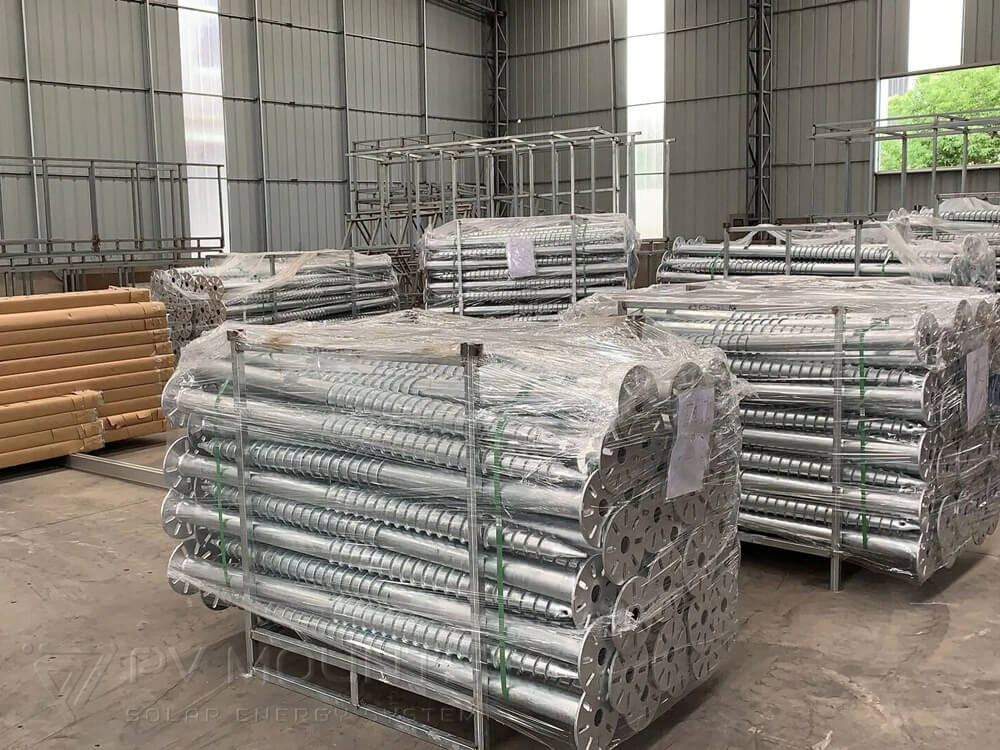
Scew Packing
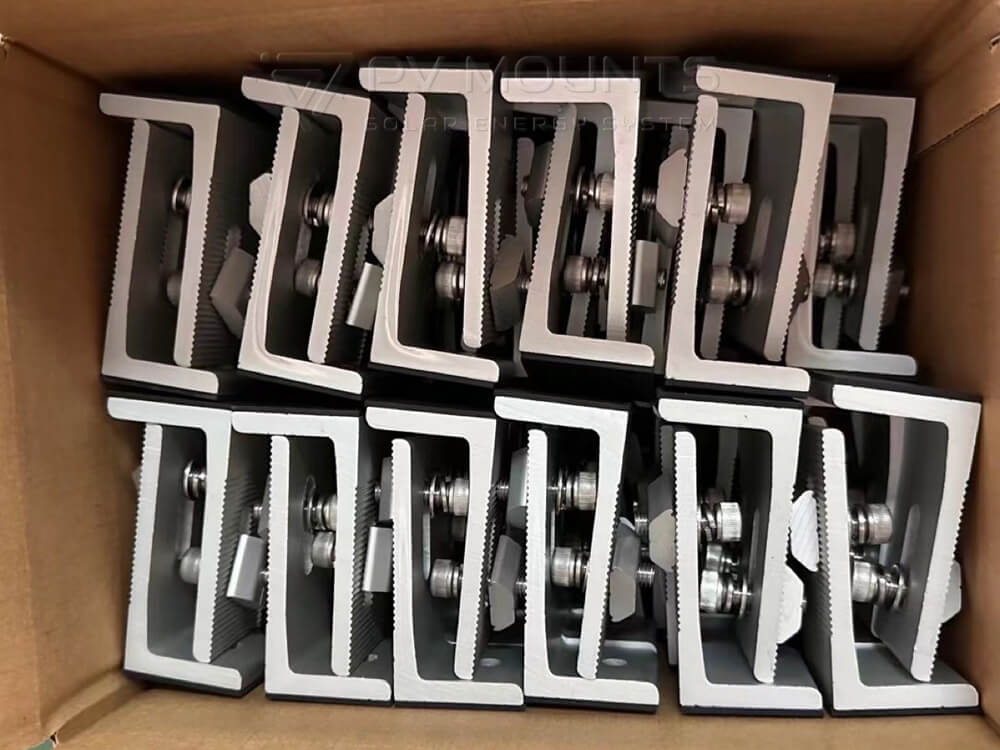
Components Packing
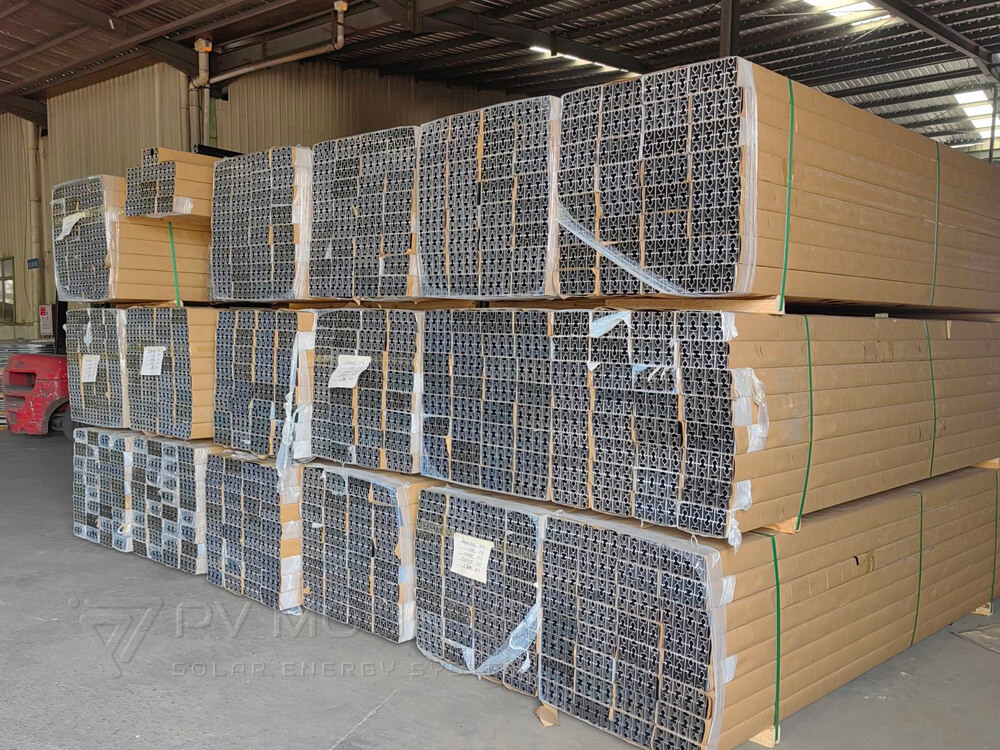
Rail Packing
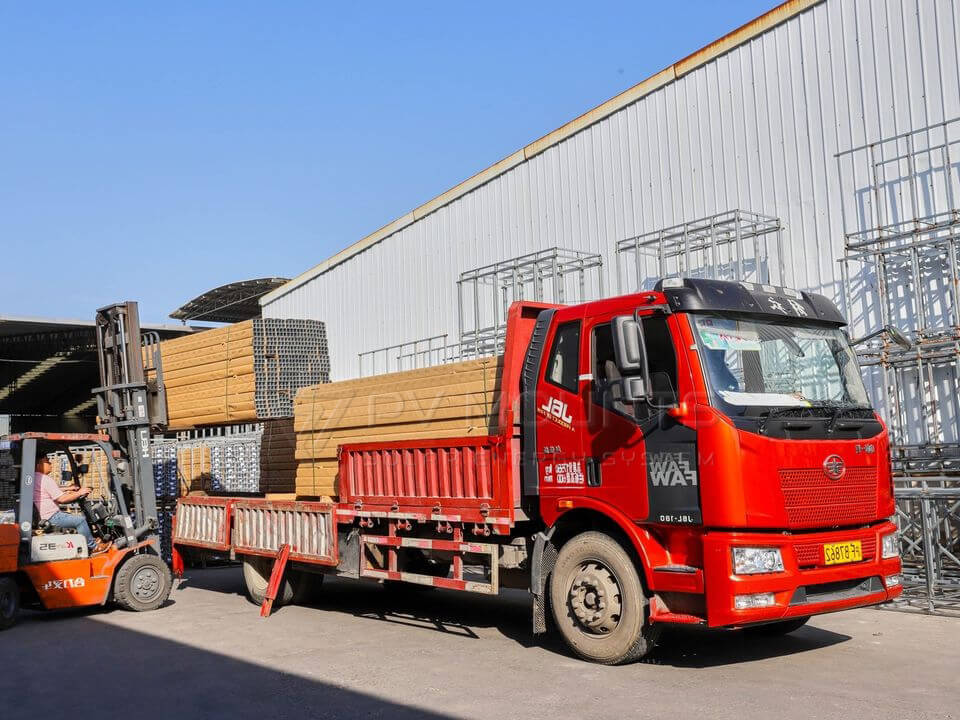
Loading & Shipping
Solar Projects from PV Mounts
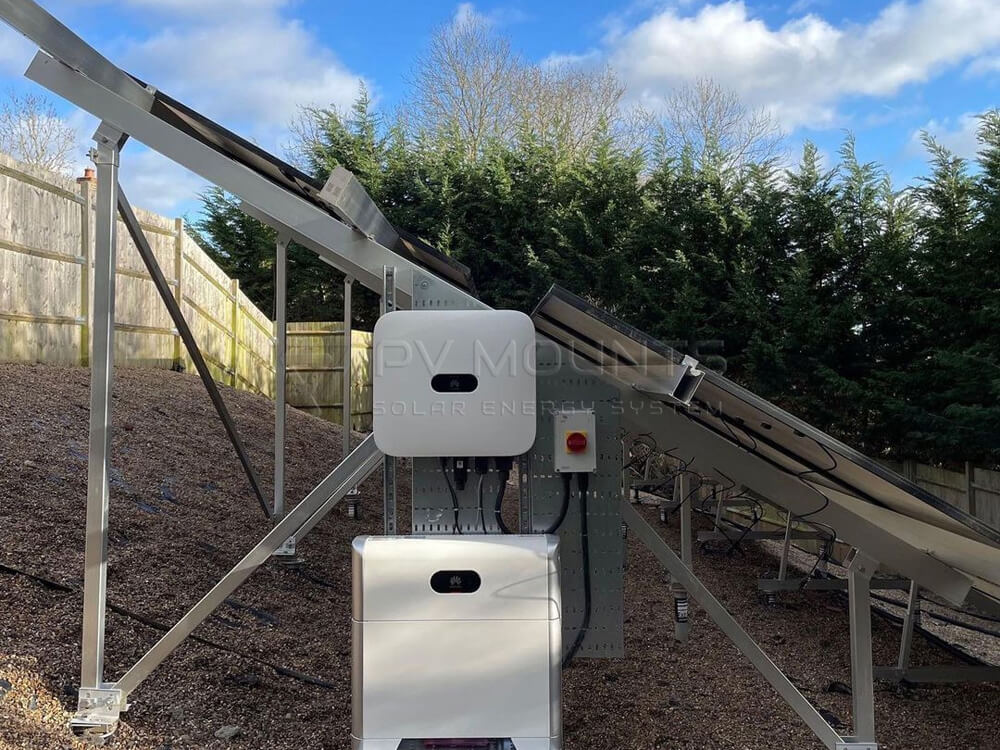
Components Assembling
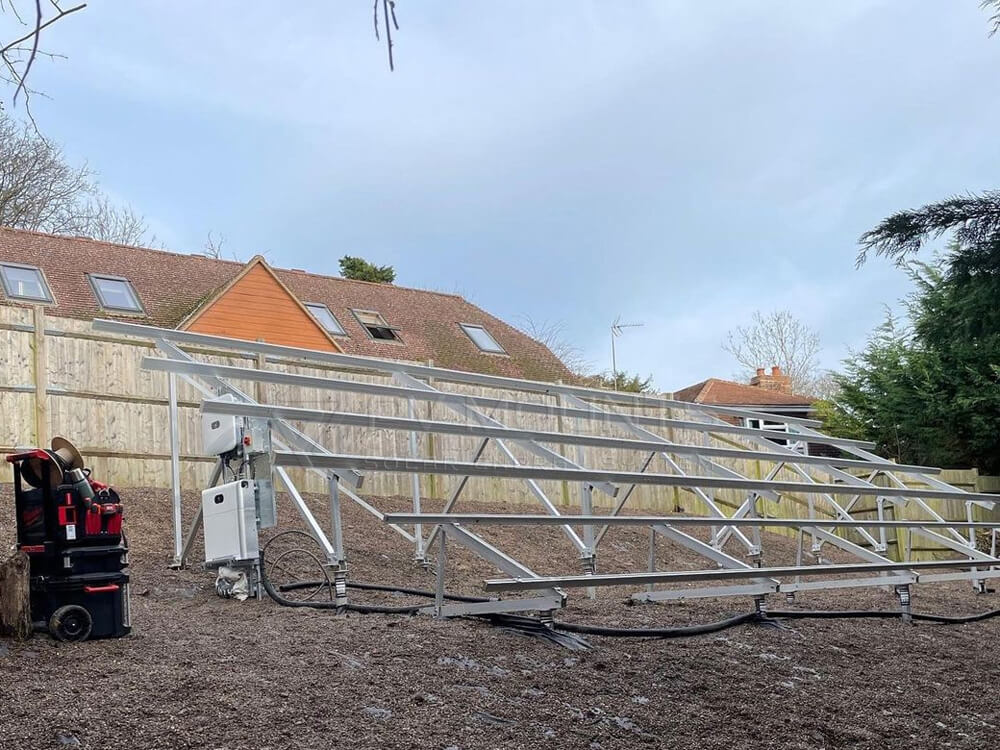
Structure Building

Solar Panels Installation
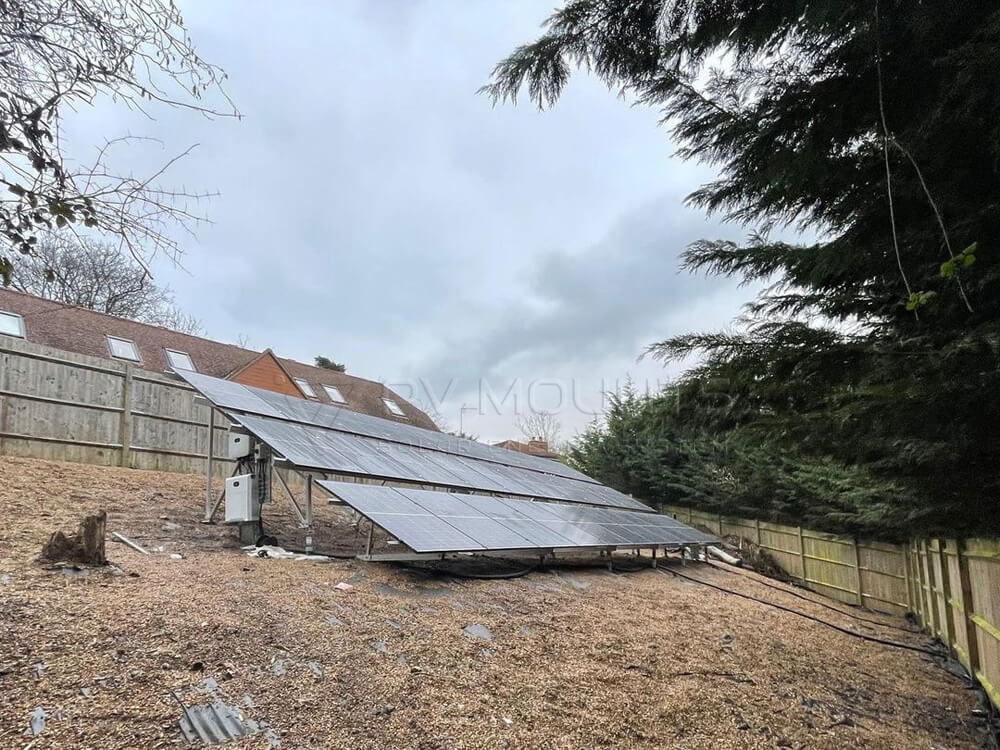
Whole Groud Mount System View
Ground Mounting FAQ
A: Please provided these details as posssible as you can. Thanks.
| 1 | The dimension of the solar panel: | _________(Length*Width*Thickness) |
| 2 | How many solar panels do you plan to install for the project? | ______pcs. |
| 3 | Solar panel array layout. If no available, please send size (Length and Width) of your installation site. |
|
| 4 | What is the optial tilt angle for solar panel?: | _______degree. |
| 5 | What’s wind speed and snow load? | ___m/s anit-wind speed and____KN/m2 snow load. |
| 6 | What installation orientation for solar panel? | _______(Horizontal or Vertical). |
| 7 | Latitude and longitude of installation site? | |
| 8 | Which foundation you need for your coming ground mounting system? | ______( ground screw/concrete/pile/pole ) |
| 9 | How tall is the lowest height from the solar panel to the ground? | _______mm |
A: Yes. Free sample are available for checking quality at your express cost. Delivery cost will be refund after order confirmed.
A: It depends on your order quantity and requirement. Usually within 7~15 working days after received the deposit.
| Quantity (pieces) | 1 – 500 | 501 – 5000 | 5001 – 50000 | > 50000 |
| Lead time (days) | 7 | 10 | 15 | To be negotiated |
| Payment Term | T/T | Small order | 100% T/T in advance |
| EXW | |||
| DAP | |||
| FOB | 30% T/T in advance, 70% balance paid before shipment. | ||
| CNF | 30% T/T in advance, balance paid against copy of B/L | ||
| CIF | |||
| Delivery Method | By express, By air, By Sea or By train | ||
A: We offer 10 years warranty and lifespin up to 25 years.
Manufacturer of Solar Ground Mount
What is Solar Ground Mouting System?
Ground solar mounting systems are integral to successful solar installations, offering stability and efficient energy capture. With different types available, each provides unique benefits: fixed-tilt mounts are cost-effective, while seasonal tilt mounts optimize yearly energy production. Single-axis trackers enhance solar exposure, and dual-axis trackers deliver supreme tracking precision.
The choice of a ground mount system is guided by factors like space, budget, project needs, and local rules. These systems effectively utilize ground space, making them apt for large-scale projects and residences where rooftop mounting is unfeasible. By securing solar panels, they’re pushing forward the wider adoption of renewable energy.
How Ground Mouting System works?
Ground mounting systems provide a framework for installing solar panels on the ground, allowing them to be positioned at an optimal angle and orientation for capturing sunlight. Here’s a general overview of how a ground mounting system works:
- Site preparation: Before installing the ground mounting system, the installation site is prepared by clearing any obstacles, leveling the ground, and ensuring proper drainage.
- Foundation installation: The system’s foundations are installed, which can be in the form of concrete footings, ground screws, or ballasts. These foundations provide stability and support for the mounting structure.
- Racking installation: The racking system is then assembled and attached to the foundations. The racking structure typically consists of aluminum or steel components that provide the framework for mounting the solar panels.
- Panel attachment: Solar panels are securely attached to the racking structure using mounting clamps or brackets. The panels are positioned at the desired tilt angle, often optimized for the latitude of the installation site.
- Wiring and electrical connections: Wiring is installed to connect the solar panels in series or parallel configurations, depending on the system design. Electrical connections are made to ensure the flow of electricity from the panels to the inverter and the electrical grid.
- Grounding and safety measures: Proper grounding is essential for safety and to protect the system from electrical faults. Grounding conductors and equipment are installed to meet electrical code requirements.
- Maintenance and monitoring: Regular maintenance, such as cleaning the panels and inspecting the system, is necessary to ensure optimal performance. Monitoring systems may also be integrated to track the energy production and detect any issues or faults.
Application Areas of Ground Mounting System
- Large-scale solar farms: Ground mounting systems are extensively used in large-scale solar farms or solar parks. These areas require efficient ground mounting structures to support a high number of solar panels.
- Commercial and industrial installations: They are used to install solar panels to meet the energy needs of factories, warehouses, office buildings, shopping centers, and other commercial properties.
- Agricultural and rural areas: agricultural fields or rural areas where there is ample land available. Farmers can utilize their unused land for solar installations, generating renewable energy and providing additional revenue streams.
- Community solar projects: Ground mount systems are applied in community solar projects that aim to provide solar energy access to multiple households or a community. These systems allow for centralized installation and distribution of solar power.
- Residential installations: sometime, ground mount systems are used for residential application, especialy when there are shading issues or insufficient rooftop space. Larger properties can opt for ground-mounted solar systems to maximize energy production.
To learn more about application you can find our article below:
Harnessing the Sun: The Application of Ground Solar Mounting Systems
Is Permission needed for Ground Mount System installations?
Yes, permission is typically required for installing a ground mounting system for solar panels.
- Building permits are necessary to ensure safety and compliance with local building codes.
- Zoning regulations dictate where solar installations are allowed and may have specific requirements.
- Environmental impact assessments might be needed for larger-scale projects.
- Utility interconnection agreements may be required for grid-connected systems. Homeowner associations may have their own approval process.
Researching local regulations, consulting with authorities, and working with professionals can help navigate the permitting process effectively.


